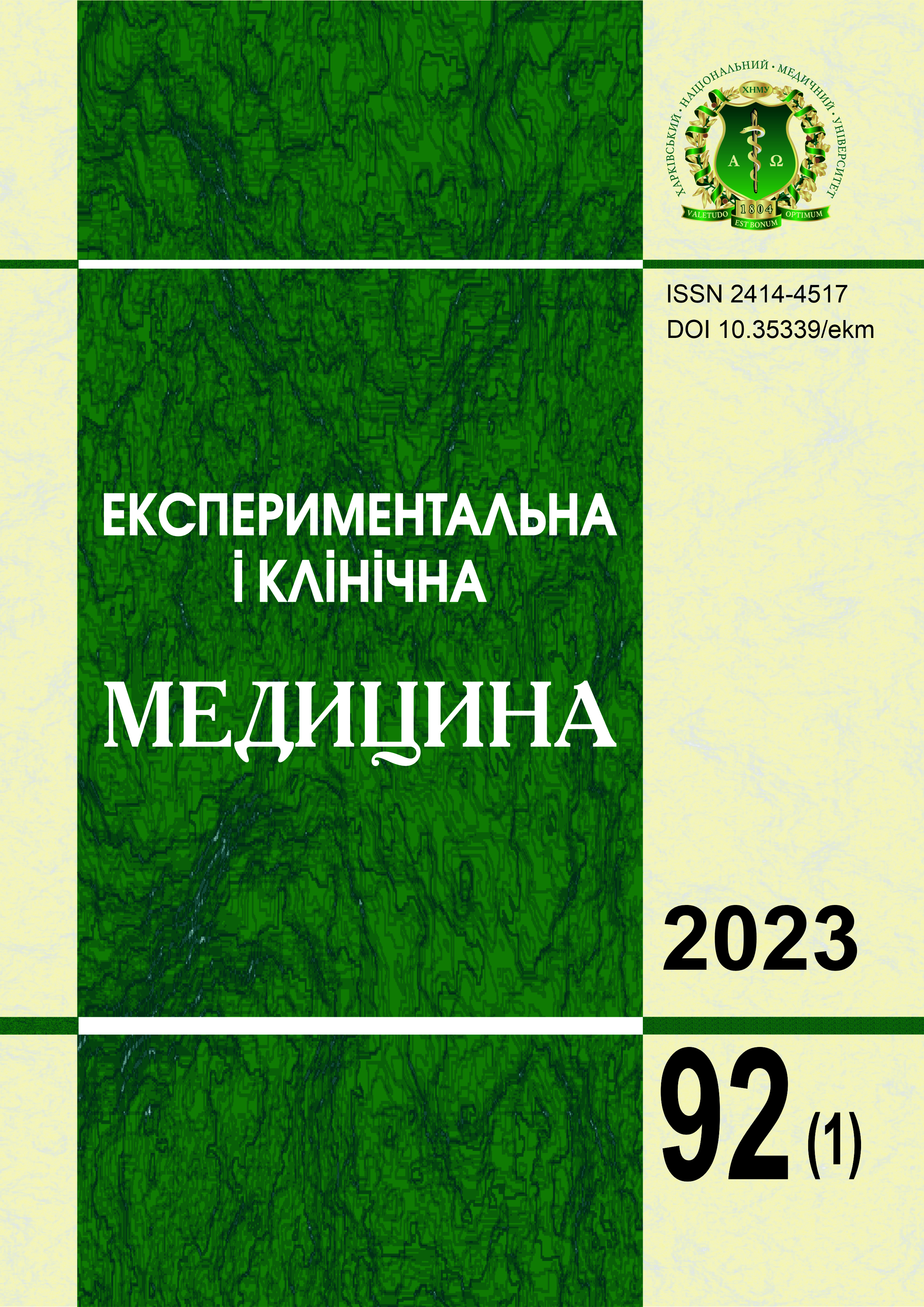Abstract
The mild blast-induced brain traumatic injury like a battle fatigue, leads to neurological disability, including due to a violation of spatial memory. The presented work is the result of a blast-induced brain traumatic injury study on a self-developed device. For the experiment, 15 white Wistar rats were used and were divided into 3 groups: rats of Experimental group exposed by air shock wave (26–36 кPа); Sham group (anesthesia with halothane and fixation in a horizontal position) and Intact group. The ability to learning (food reinforcement) and the spatial memory state (time to search for food, vertical locomotor activity) were studied in the complex maze during the first 5 days of the posttraumatic period. To assess the emotional state, we counted the number and observed the quality of grooming acts. All researches were conducted in compliance with modern standards for humane attitude of animals. The results of our study clearly indicate a violation of spatial memory, which was manifested in the time of searching lengthening of the feeder and in the increase of vertical locomotor activity in the rats of the experimental group, while the animals clearly remembered that they were looking for food. The analysis of grooming showed qualitative changes in the form of incomplete and prolonged acts. Such changes indicate the development of anxiety in rats with mild blast-induced traumatic brain injury. This, in turn, led to deterioration of the spatial orientation and memory formation. Thus, the consequence of a mild blast-induced traumatic brain injury in the acute period is changes in the cognitive function of the brain in the form of deterioration of spatial memory, which was aggravated by a disturbance of emotionality in the form of anxiety. At the same time, the memory regarding the presence of food was formed adequately.
Keywords: explosion, central nervous system, cognitive function, memory, maze.
References
Krukowski K, Nolan A, Becker M, Picard K, Vernoux N, Frias E S, Rosi S. Novel Microglia-mediated Mechanisms Underlying Synaptic Loss and Cognitive Impairment after Traumatic Brain Injury. Brain, Behavior, and Immunity. 2021;98:122-35. DOI: 10.1016/j.bbi.2021.08.210. PMID: 34403733.
Tomura S, Seno S, Kawauchi S, Miyazaki H, Sato S, Kobayashi Y, Saitoh D. A Novel Mouse Model of Mild Traumatic Brain Injury using Laser-induced Shock Waves. Neurosci Lett. 2020;721:134827. DOI: 10.1016/j.neulet.2020.134827. PMID: 32036028.
Zhang JH, Gu JW, Li BC, Gao FB, Liao XM, Cui SJ. Establishment of a Novel Rat Model of Blast-related Diffuse Axonal Injury. Exp Ther Med. 2018; 16(1):93-102. DOI: 10.3892/etm.2018.6146. PMID: 29977358.
Kozlova YuV, Maslak HS, Abraimova OE, Koldunov VV, Khudyakov OE. State of Spatial Memory and Antioxidant System Activity of Rats in the Dynamics of Development of Blast-induced Traumatic Brain Injury. Medicni perspektivi. 2022;22(3):27-32. DOI: 10.26641/2307-0404.2022.3.265769.
Losurdo M, Davidsson J, Skold MK. Diffuse Axonal Injury in the Rat Brain: Axonal Injury and Oligodendrocyte Activity Following Rotational Injury. Brain Sciences. 2020;10(4):229. DOI: 10.3390/brainsci10040229. PMID: 32290212.
Saba ES, Karout M, Nasrallah L, Kobeissy F, Darwish H, Khoury SJ. Long-term Cognitive Deficits after Traumatic Brain Injury associated with Microglia Activation. Clinical Immunology. 2021;230:108815. DOI: 10.1016/j.clim.2021.108815. PMID: 34339843.
Whitney K, Nikulina E, Rahman SN, Alexis A, Bergold PJ. Delayed Dosing of Minocycline plus N-acetylcysteine Reduces Neurodegeneration in Distal Brain Regions and Restores Spatial Memory after Experimental Traumatic Brain Injury. Experimental Neurology. 2021;345:113816. DOI: 10.1016/j.expneurol.2021.113816. PMID: 34310944.
Nonaka M, Taylor WW, Bukalo O, Tucker LB, Fu AH, Kim Y, et al. Behavioral and Myelin-Related Abnormalities after Blast-Induced Mild Traumatic Brain Injury in Mice. J Neurotrauma. 2021;38(11):1551-71. DOI: 10.1089/neu.2020.7254. PMID: 33605175.
McNamara EH, Tucker LB, Liu J, Fu AH, Kim Y, Vu PA, McCabe JT. Limbic Responses Following Shock Wave Exposure in Male and Female Mice. Front Behav Neurosci. 2022;7(16):863195. DOI: 10.3389/fnbeh.2022.863195. PMID: 35747840.
Rigon A, Schwarb H, Klooster N, Cohen NJ, Duff MC. Spatial Relational Memory in Individuals with Traumatic Brain Injury. Journal of Clinical and Experimental Neuropsychology. 2020;42(1):14-27. DOI: 10.1080/13803395.2019.1659755. PMID: 31475607.
Patent for a utility model No.146858 "Device for studying the effect on the body of the shock wave of an explosion." Yuliia Kozlova, owner. It was active since March 25, 2021, and has been discontinued. Ukrpatent, Bul. No.12. Available at: https://base.uipv.org/searchINV/search.php?action=viewdetails&IdClaim=275100.
Stokum JA, Keledjian K, Hayman E, Karimy JK, Pampori A, Imran Z, et al. Glibenclamide Pretreatment Protects against Chronic Memory Dysfunction and Glial Activation in Rat Cranial Blast Traumatic Brain Injury. Behav Brain Res. 2017;333:43-53. DOI: 10.1016/j.bbr.2017.06.038. PMID: 28662892.
Shi QX, Chen B, Nie C, Zhao ZP, Zhang JH, Si SY, et al. Improvement in Cognitive Dysfunction Following Blast Induced Traumatic Brain Injury by Thymosin α1 in Rats: Involvement of Inhibition of Tau Phosphorylation at the Thr205 epitope. Brain Res. 2020;1747:147038. DOI: 10.1016/j.brainres.2020.147038. PMID: 32738231.
Anderson LM, Samineni S, Wilder DM, Lara M, Eken O, Urioste R, et al. The Neurobehavioral Effects of Buprenorphine and Meloxicam on a Blast-Induced Traumatic Brain Injury model in the Rat. Front Neurol. 2021;12:746370. DOI: 10.3389/fneur.2021.746370. PMID: 34712199.
Rubovitch V, Zilberstein Y, Chapman J, Schreiber S, Pick CG. Restoring GM1 Ganglioside Expression Ameliorates Axonal Outgrowth Inhibition and Cognitive Impairments Induced by Blast Traumatic Brain Injury. Sci Rep. 2017;7:41269. DOI: 10.1038/srep41269. PMID: 28112258.
Ruotolo F, Sbordone FL, J M van der Ham I. The Relationship between Emotionally Laden Landmarks, Spatial Abilities, and Personality Traits: an Exploratory study. Brain Sci. 2020;10(6):326. DOI: 10.3390/brainsci10060326. PMID: 32471259.

This work is licensed under a Creative Commons Attribution-NonCommercial-ShareAlike 4.0 International License.

